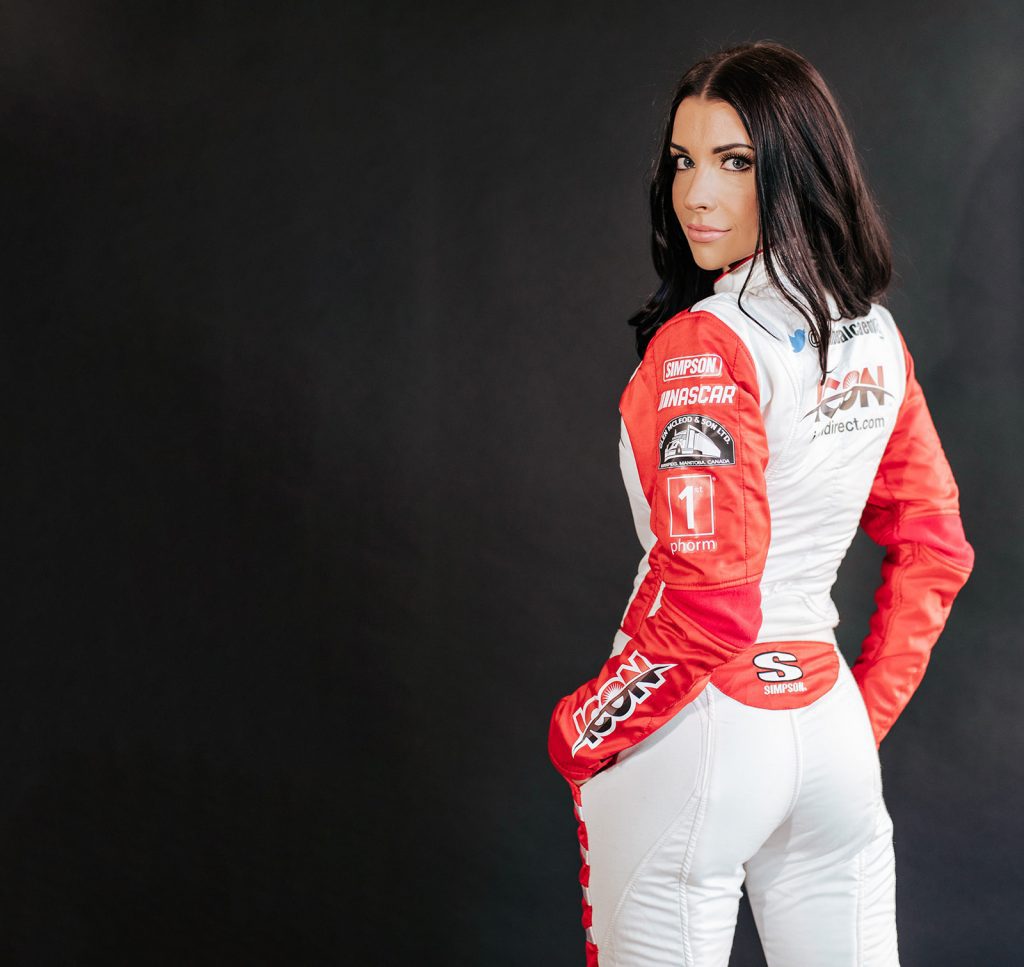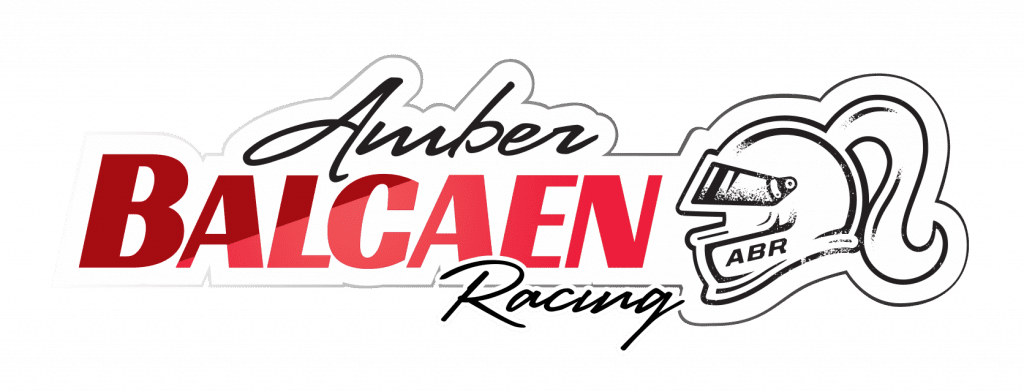Blog
Q&A with Amber Balcaen
Brian Thornsburg: You’re in the process of moving from your home town of Manitoba Canada to South Carolina. What made you finally want to make the big move and how are you adjusting to your new surroundings.
Amber Balcaen: I currently still reside in Winnipeg, MB. The process of moving the states is difficult when you’re Canadian. I am in the process of getting a visa so I can live there permanently, so I am just back and forth between home and North Carolina for now. I want to move there because that’s where the racing is. I will be racing in the region so it just makes sense geographically. Plus I absolutely love the state, I think it is so beautiful and I have been lucky enough to make some friends there already!
BT: Was it difficult to leave your home town to follow your dream of racing. What are your thoughts on that?
AB: I have extremely great friends back at home that I have been close with for a really long time. I am used to seeing almost every day so that will be a big adjustment not getting to see them all the time. I am also very close with parents, especially my mom. I know it will be a big adjustment for her to not see my all the time but I am thankful that my parents support my dreams.
BT: What was it that gave you the racing bug and made you want to pursue this profession full-time? Did you have any doubts in your mind while making this decision?
AB: I have been in love with racing my entire life. Both my mom and dad have a racing background so I was born into it and it instantly became my greatest passion. I went to college with plans to live a more “normal” life however the temptation just never went away. I knew I wanted to race cars for a career and do big things with the platform that was accessible to me. I for sure had my doubts. I don’t come from any money, I have always financially been responsible for my racing since day one. I am a Canadian trying to make something of myself in an American sport. I am a female in a male dominated sport. And I’m from dirt racing that up until about a year ago had zero experience on pavement. There was tons of adversity that I would have to overcome but I didn’t let it stop me because I felt that this is what I am meant to do in life and simply couldn’t imagine doing anything else.
BT: You mention in previous interviews that your mom and dad were a little nervous about you stepping behind the wheel of cars with increasing amounts of speed involved. Do they still get nervous about your racing career or have they calmed down a little bit about it?
AB: My mom feels way more comfortable with me on asphalt than she did with me in sprint cars on dirt. I think asphalt is safer in these big cars so she like the idea of that. I think initially my dad questioned me hopping into a 410 sprint car but once he saw how comfortable I was in it and how quickly I adjusted to the speed he was much more comfortable. I don’t think I have any fear when it comes to speed.
BT: You were the first woman to win a dirt track racing championship in Manitoba Canada. What was that like and what other history are you looking to make as you work yourself up the ranks of the five NASCAR series?
AB: Every accomplishment feels great but once you reach one goal you just want to set another goal. The chase to do more and be better never ends. I hope to win a race in every series of NASCAR that I compete in. I was really close to being the first Canadian female to win a NASCAR sanctioned race in the USA last weekend at Motor Mile where I was battling for the lead the majority of the race. I am hoping next race I am able to earn that title. I also want to win championships on pavement as well as races. Being a Canadian female in this sport lets me set some pretty neat goals that I look forward to accomplishing!
BT: Your bio stats that you have never used family money or financial backing to fund your blossoming racing career. What is it like to go out and find sponsors yourself and do you believe this puts you at a disadvantage over others competitors.
AB: I’m not going to lie, it is extremely tough. You have to be utterly relentless and not let the No’s discourage you. I think for the most part it puts me at a disadvantage because I have to work 100 times harder just to GET on the race track, regardless of my talent; Rather someone who already has the financial backing to do so. However, the optimistic side of me says it is an advantage because I am able to use my college experience and problem solving skills to learn about the industry and learn how to bring value to potential sponsors and create real long-lasting partnerships. It allows me to leverage the way I present myself, my professionalism and social skills, and my ability to build partnerships with people. Life is all about learning, growing and personal progression. This route is definitely not the easiest way but I think it has made be a better person and it feels really great to truly earn things. It teaches me to be humble, and I will for sure be giving back to the dirt track racing community once some success is earned.
BT: What do you believe teams and sponsors like most about you and your ability on the racetrack?
AB: Because sponsors have been the only way I am able to be on the track, I know the importance of them and how to bring value to them and always want to keep them happy. Teams want you to be competitive and I have a very competitive attitude. I go to the race track to win. I am easy going and can be fun and be silly, but there is also a time for seriousness and when race day comes along I am nothing but focused on the job I need to do. I want to win for my team, sponsors, and fans, just as much as I want to win for myself.
BT: What kind of conversations did you have with your father about finally stepping behind the wheel and going out racing? What finally made your dad give in to letting you follow your dreams of racing?
AB: When I was a young girl I begged my dad for years to let me race and at the age of 10 he finally said “ok you can, but you have to find the sponsorship for it and work on your cars”. I was 21 when I made the decision to try to make a career out of it and both my parents were nothing but supportive. My dad said “It is going to be very hard, but I will support you with whatever you choose to do in life”. He said “you know I can’t support you financially but you have my moral support” and that’s all I needed.
BT: Your grandfather is Lou Kennedy and your dad Mike Balcaen both have had successful careers in dirt racing. Do you feel any pressure or that you have to live up to their legacy and what they did on the track?
AB: I used to when I was younger but I don’t anymore. I’m kind of on my own path now and am old enough where I will do whatever I feel is the right decision for my future.
BT: Not only are you continuing your families legacy in some ways, you are also carving a legacy of your own on concrete and asphalt tracks. What do you think about going a step further then what your grandfather and dad did and creating your own legacy on asphalt.
AB: I think it was a pretty bold decision, and kind of a scary one at that. I never thought I would have these kind of opportunities and be doing the things I am doing now. When I was young it seemed so far fetch to step outside of dirt track racing since no one in my family had ever done it. I have moved into an entirely different from of circle track racing, and one that I frankly didn’t know that much about. I have learned so much in the past few years by chasing my dreams and I don’t think it’s something I will every regret, regardless of how far I make it.
BT: What changes, if any, do you hope NASCAR makes to its top tier series before you debut there?
AB: I hope that they can be easier on the driver “fines” when it comes to drivers giving their opinions in interviews. Interviewers are doing their job by asking questions, and drivers are doing their job by answering them. As long as they are being answered in a respectable way (no cursing/vulgarity) I don’t see why they should be fined for giving their honest opinion on a racing related issue that they were asked about in the first place.
BT: You help mentor a young girl back in your hometown of Manitoba. What has that process been like for you and how has it helped you as grow as a person and a driver.
AB: She actually is from North Dakota but it’s been pretty cool to see her develop these last couple years. I do my best to be a positive role model to younger girls both in and out of the sport. I want them to know that they can come to me at any time for any advice on racing, or on life. I hope that my wisdom and experience can help them.
BT: What have you taught her so far and have you seen it pay off on the track?
AB: Yes definitely, I have tested her cars to make sure they are perfectly set up and fast for her to hop into! I have been helping her out on the driver’s side of things as well. If I am not able to make the race she will call or text me to ask me how she should run a certain line, how to drive that type of racetrack, or questions on set up. She has already won a feature so I think the help has paid off!
BT: Do you believe that some of the attention you are receiving from media is due to your looks? If so, do you find that disrespectful at all?
AB: When you are a female in the sport of racing you are more so under a microscope than if you were a guy. I work really hard for everything but I would be lying if I said the marketability doesn’t helps in some situations. In saying that, looks aren’t going to get you to the NASCAR Cup Series. Hard work, talent, and money will. I don’t think embracing my femininity is disrespectful. I pride myself on creating a brand that is respectable to all ages of women and use my role in Motorsports to empower other women. My mission is to use my platform in racing to help bring confidence to younger women and show them that anything is possible.

